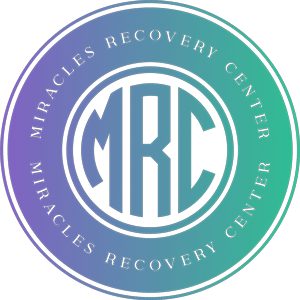Navigating the journey to recovery from alcohol addiction can be daunting, especially when faced with numerous treatment options. In Port St. Lucie, Florida, there is a diverse range of facilities and programs designed to support individuals on this path. This blog will explore the various alcohol treatment options available and help you determine which one might be the best fit for you or your loved one.
Exploring Inpatient Treatment Programs
Inpatient treatment programs offer a structured environment where individuals can focus solely on their recovery. With 24⁄7 medical and emotional support, these programs are ideal for those with severe addiction or requiring intensive care.
These programs immerse individuals in a community of peers and professionals who are all committed to recovery. Being in an environment that minimizes external distractions allows individuals to concentrate fully on healing. The primary foundation of inpatient programs involves a combination of medical detoxification, individual and group therapy, and lifestyle changes. The integration of these elements can significantly increase the likelihood of long-term recovery.
Understanding Outpatient Treatment Options
Outpatient programs provide more flexibility, allowing individuals to receive treatment while maintaining daily responsibilities. These options are suitable for those with a supportive home environment and less severe addiction issues.
One advantage of outpatient treatment is the ability to apply coping strategies in real-time outside of treatment sessions. This mode of treatment often includes individual counseling, group sessions, and education about the nature of addiction. Support from family and friends plays a crucial role, and their involvement during therapy can reinforce the recovery process. It’s an opportunity to learn and apply new skills in managing triggers and stressors.
Participants in outpatient programs often find themselves establishing better communication with loved ones. This type of program encourages the enhancement of social networks and community connections. Although outpatient treatment might not suit everyone, especially those with severe dependencies, it offers a practical and effective solution for maintaining balance between recovery and everyday life.
The Role of Support Groups in Recovery
Support groups like Alcoholics Anonymous play a crucial role in the recovery process. These peer-led groups offer a sense of community, shared experiences, and ongoing support to help individuals stay on track.
Groups such as SMART Recovery or Celebrate Recovery are alternatives to AA, each offering unique methodologies. They all share a common goal: fostering a sense of belonging and unconditional encouragement from peers who truly understand the journey you’re on. Participants often highlight the benefit of accountability partners who are just a phone call away. This network helps individuals remain steadfast in their recovery, building resilience and confidence.
The motivational boost from hearing success stories during group meetings can be substantial. These narratives of triumph over addiction instill hope and inspire others to stay dedicated to their own journeys. Moreover, sharing one’s own story can be a profound source of healing. Being surrounded by people who listen without judgment or criticism reinforces the idea that recovery is a shared experience.
Holistic Approaches to Alcohol Treatment
Holistic treatment programs incorporate activities such as yoga, meditation, and art therapy to address the physical, emotional, and spiritual aspects of addiction. These programs can be beneficial for individuals seeking a more comprehensive approach to recovery.
More people are drawn to holistic therapies as they offer a way to connect the mind, body, and soul. Meditation and mindfulness practices help reduce stress and anxiety, common triggers for relapse. Art therapy allows individuals to express emotions and process experiences creatively, which can be especially healing for those who struggle to verbalize their feelings.
Therapies like equine-assisted therapy and music therapy have been gaining traction. These programs emphasize healing one’s overall well-being, not just the addiction itself. Holistic approaches often serve as supplements to traditional therapies, offering an added layer of support. The focus on wellness rather than mere abstinence can help sustain long-term recovery, nurturing a sense of inner peace and fulfillment.
Choosing the Right Program for You
Selecting the best treatment option requires consideration of various factors, including the severity of addiction, personal preferences, and lifestyle commitments. Consultation with a healthcare professional can guide individuals in making an informed decision.
It’s crucial to evaluate what you hope to achieve from treatment as it greatly influences the choice of program. Some individuals require a complete break from their current environment, which makes inpatient treatment favorable. Others, valuing privacy and independence, may gravitate towards outpatient programs. For those intrigued by creativity and spirituality, holistic approaches might be most appealing.
Ultimately, recognize that every recovery journey is as unique as the individual embarking on it. What works well for one person might not be the best match for another. The key is finding a program that you can commit to fully and that aligns with your values and circumstances. Don’t hesitate to explore more about available options and seek advice from mental health professionals or support groups on what fits best for you.
Making the Right Choice for Your Recovery Journey
Choosing the right alcohol treatment option in Port St. Lucie is an important step towards recovery. By understanding the different types of programs available and considering individual needs, you can find a path that aligns with your personal goals and circumstances. Remember, seeking help is a courageous first step, and there is support and hope waiting on the other side.





